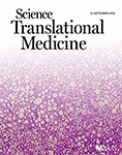Targeting Natural Killer Cells in AML
Cellular immunotherapy with Natural Killer (NK) cells is emerging as a potentially effective treatment option for older patients (more than 60 years of age) with Acute Myeloid Leukemia (AML).
AML remains a disease with high unmet medical need, particular for those patients who relapse and are ineligible for a stem cell transplant (SCT).
There’s considerable buzz around adoptive cellular therapy and, in particular, chimeric antigen receptor modified T cells (CAR T cells). It is important, however, to note that there are other approaches worthy of consideration. See post: Could a Novel Cell Therapy replace CAR T cell therapy?
Cancer immunotherapy targeting NK cells has already shown some early promising results in AML. We await the read out of the EFFIKIR trial data for lirilumab (Innate Pharma/BMS), an anti KIR (killer inhibitory receptor monoclonal antibody (See post: Innate Pharma at an Inflexion Point, an interview with Hervé Brailly).
 Rizwan Romee, Maximilian Rosario, Melissa Berrien-Elliott and colleagues at the Washington University School of Medicine in St Louis (@WUSTLmed) recently published the results of a clinical trial with a novel NK cell therapy: “Cytokine-induced memory-like natural killer cells exhibit enhanced responses against myeloid leukemia.”
Rizwan Romee, Maximilian Rosario, Melissa Berrien-Elliott and colleagues at the Washington University School of Medicine in St Louis (@WUSTLmed) recently published the results of a clinical trial with a novel NK cell therapy: “Cytokine-induced memory-like natural killer cells exhibit enhanced responses against myeloid leukemia.”
The paper was published on 21 September, 2016 in Science Translational Medicine (link).

To better understand the trial results and what they tell us about NK cell therapy in AML, BSB spoke with one of the joint first authors, Melissa Berrien-Elliot, PhD (pictured right) and senior author, Todd A Fehniger MD PhD, Associate Professor of Medicine at Washington University.
This post is part of our series on the innate immune system.
Subscribers can login to read more or you can purchase access.
This content is restricted to subscribers